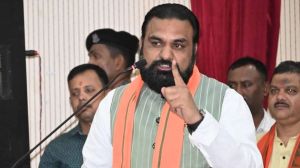India, US agree to skirt IPR hurdle for crucial projects
NEW DELHI, Dec 29: India and the United States have decided to skirt the vexed intellectual property rights (IPR) hurdle which has held up a...

NEW DELHI, Dec 29: India and the United States have decided to skirt the vexed intellectual property rights (IPR) hurdle which has held up a number of science and technology-related projects by setting up an Indo-US Science and Technology Forum.
Taking a pragmatic approach to avoid being bogged down by the stalled IPR legislation in India, the two countries have reopened a dialogue which should enable non-IPR related projects to go ahead.
The agreement to set up the dialogue mechanism was to have been signed during the visit to India last month by US Secretary of State Madeleine Albright.
But since her visit was cut short due to the Iraq crisis, it was initialled today by Union Science and Technology and Power Minister Y K Alagh and US Ambassador to India, Richard Celeste.
The urgency to formally sign the agreement to set up the forum arises because the US-India Rupee Fund which provides funding for numerous joint scientific projects expires on January 7. The Fund which has been in operation since 1987, expired last year but was extended by a year.
“The significance of today’s declaration of intent is that it opens up a dialogue which has been non-existent”, said V S Ramamurthy, Secretary, Department of Science and Technology. While the US-India Rupee Fund covered only government-to-government scientific cooperation, the broad-based forum will allow private sector investment in Research and Development, which both sides are hoping will be the trend in future.
Indian officials said while the impasse over the IPR issue cannot be wished away, the forum is a forward movement since it indicates a willingness on the part of both countries to keep talking.
However, though the forum may provide a temporary respite, there are indications that Washington will keep up the pressure on India on the IPR issue. According to Celeste, the forum would identify potential barriers that could impede collaboration between scientists and scientific establishments in the two countries.
Asked if by “barriers” he was referring to the IPR, the US Ambassador agreed that the non-passage of IPR-related legislation was a “handicap”. Under the new agreement, scientists could sort out problems pertaining to the sharing of rights over research and patents at their level themselves.
For the past four years, funding from the US-India Rupee Fund for almost all scientific projects resulting in a patenting of research findings or products had come to a standstill. Once the forum becomes operational, projects which do not involve IPR issues would be cleared immediately, while in the case of projects where differences could arise over patenting, the Forum would serve as a platform to resolve the issue.
Photos



- 01
- 02
- 03
- 04
- 05




























